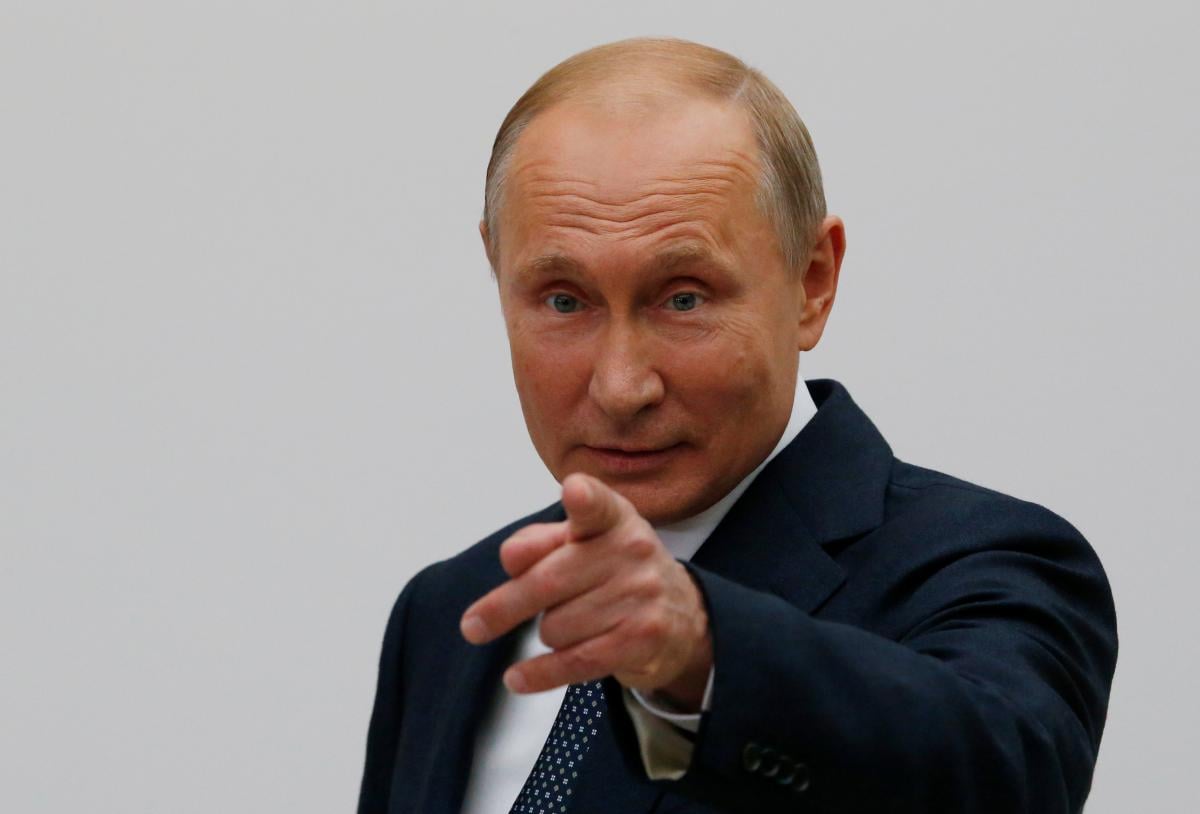
Russian President Vladimir Putin at his upcoming meeting with U.S. President Donald Trump will probably seek, as it happened before, to solve the Ukraine issue without having Kyiv at the negotiating table, that's according to U.S. Senator Rob Portman who spoke at the U.S. Senate Foreign Relations Committee hearing June 26.
One of the issues of concern ahead of the Trump-Putin summit Senator Rob Portman named "President Putin asking to make decisions about Ukraine without at the table," which has been the approach the Russian president "has taken in the past," Senator Portman said, addressing U.S. State Department Assistant Secretary on European and Eurasian Policy Wess Mitchell, Voice of America reported.
"How would you advise the president on this issue regarding Ukraine and specifically the sanctions and what's going on the contact line at the eastern border of Ukraine?" the senator asked.
In response, Wess Mitchell said that the U.S. position as regards Ukraine was clearly outlined: "I'm not going to engage in too many hypotheticals. I think that on Ukraine, we've been very clear in our public messaging and I think the legislation is clear: what specific actions are needed on the part of the Russians in order for us to lift sanctions. And I think we've shown our resolve in this matter, not least by providing defensive aid to the Ukrainians and to the Georgians."
Mitchell also underlined the fact that due to the new legislation, any easing or lifting of sanctions will require the approval by Congress. "On the issue of sanctions, I've read the legislation very carefully, and CAATSA in particular spells out what would be needed in the way of changing Russian behavior in order to see the lifting of sanctions or a softening of sanctions. That's law. It's stipulated very specifically. We will abide by the law as it has been formulated and I think we have to be able to say in our conversations with the Russians what specific actions would be needed to address our concerns whether it's lifting sanctions or changing the overall temperature of our relationship. In the case of CAATSA, it's defined very specifically," he said.
Read alsoUkraine conducts first Javelin launches (Video)
Mitchell also specified that the overall mindset in relations with Russia is that "we keep the door open to constructive dialogue where there are shared areas of interest... I think we owe it to the American people and international stability to keep open to the idea that we can find those areas particularly on counterterrorism."
Senator Portman noted that the Trump Administration had made positive steps toward increasing Ukraine's defenses, and that he saw the results of such policy implementation during his visit to Ukraine this year. He said that the work toward provision of lethal weapons to Ukrainians with the Obama Administration for six years had been unsuccessful and there had initially been concerns on the issue as regards the Trump Administration, but now the situation changed.
"Now the Trump Administration is providing Ukrainians the means to defend themselves. And of course, Javelin missiles being the most striking example of that, but other equipment as well, including anti-sniper packages to be able to push back against what's happening on the line of contact," the senator said.
Wess Mitchell, in turn, noted that the Trump Administration was able to evade the mistakes of the Obama-era "reset" with Russia where the U.S. made unilateral steps toward rapprochement with Russia. "We're going into all aspects of our engagement with the Russian Federation with eyes wide open. We remember the example of reset. I think we've had two consecutive administrations – it's not even a partisan issue – prior to this administration that started their term with the positive opening to the Russians, and that was abused, and then ended their term with a regional war. That's not something that we're going to replicate," the official emphasized.
Read alsoUkraine sends protest note to Russia over denial of access to Ukrainian prisoners
He noted an importance of a broader point on Russia: "It's the increasing pattern of a Russia that abuses the openings early in the administration's term and we've seen that often enough that I think that the U.S. collectively, I think, both parties and certainly this administration, is alive to the tendency of Vladimir Putin to abuse the one-sided openings. I think that the reset was illustrative in this regard."
He also recalled that the leaders of Central and Eastern Europe had warned against such erroneous policy toward Russia. "I remember the open letter that several Central and Eastern European friends of America wrote in the early days of the reset and warned us that is we open this door to the one-sided engagement, not only with Putin abusive, but we would likely have a war on our hands, and it proves sadly prophetic. We stepped back on missile defense in Poland and the Czech Republic, we stepped back on promoting democracy in the post-Soviet space and we see the consequences of that," Mitchell said.

